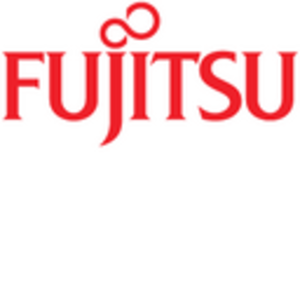What is our primary use case?
We primarily work with two main products:
- the PRIMERGY Servers and
- the Eternus storage system.
Fujitsu does not offer blade servers. It offers the rack mount series, such as the Primergy RX2450 M1, RX2520 M7, and RX4770 M7. These are the current models, and the RX4770 M7 is a powerful server in a 2U form factor.
We also frequently sell the Eternus DX100 and DX200 storage systems.
What is most valuable?
Fujitsu products are very reliable. They offer reliable storage and servers, and their libraries are also very reliable.
However, we usually recommend these products to customers who:
- specifically, request Fujitsu Eternus DX Series,
- have a technical team comfortable with Fujitsu, or
- have budget constraints that prevent them from purchasing Hitachi or NetApp.
In cases where customers want storage systems and servers, we may offer storage from Hitachi or NetApp, and servers from Fujitsu.
What needs improvement?
The only weakness is that the internal cache is low, starting from 16 GB to 64 GB. Even the larger models only have 128 GB. In comparison, NetApp storage starts with 64 GB of cache or storage memory, and their enterprise models have 128 GB or more. Hitachi doesn't offer 16 GB of cache for storage, and their options start with higher amounts like 128 GB.
So, if a customer needs more cache or storage memory, the Eternus DX series is not the right solution. However, if they need a cheaper storage solution with enterprise scalability and reliability, they should consider Fujitsu.
There are no additional features needed, but the software products for Eternus DX can become very expensive when used in combination. For example, the software stack for replication DR from mirroring and remote data replication is costly.
Even with the complete software suite, it remains cheaper than NetApp, but the prices for individual components like deduplication, local copy, and remote copy could be reduced. It's worth noting that deduplication in Fujitsu and Hitachi is not free of cost, unlike NetApp, where it is free of cost.
For how long have I used the solution?
We have been partnered with Fujitsu since 2009.
What do I think about the scalability of the solution?
Fujitsu offers a range of scalable products within the Eternus DX series, including all-flash, hybrid, and large-scale storage options. However, they do not currently offer unified storage.
In cases where unified storage is needed, they sell NetApp storage systems due to a strong partnership. As of now, there is no unified storage option in their portfolio, but a new launch may be available in the future.
What was our ROI?
The Eternus DX series is already a cheaper product with set prices, so it naturally has a faster return on investment.
In cases where customers opt for this cheaper storage solution, the return on investment is not as relevant compared to the more expensive products.
What's my experience with pricing, setup cost, and licensing?
The DX series is a very cost-effective solution compared to any other storage system sold by any vendor. It starts at $16,000, and no one else can provide a storage system at that price.
It's good for customers who want a reliable enterprise storage system but don't have the budget for more expensive options. It fits well for customers who prioritize good performance but have limited funds.
What other advice do I have?
I would recommend against it for companies with separate storage systems for different purposes, like AI or enterprise data. Recently, I haven't seen much presence of Fujitsu in the banking sector, but they have a large installed base in government sectors in Pakistan and other countries.
Considering the price, I would rate it an eight out of ten. For performance, I would rate it an eight out of ten. Customers like this product for its cost-effectiveness, and they can achieve good performance by using SSDs.
I recommend the Eternus DX series to customers who need cost-effective and reliable storage. If they need more cache or internal storage memory, depending on their use case, they can use other options like Hitachi or NetApp.
For unified storage, they should choose NetApp.
*Disclosure: My company has a business relationship with this vendor other than being a customer: Partner



